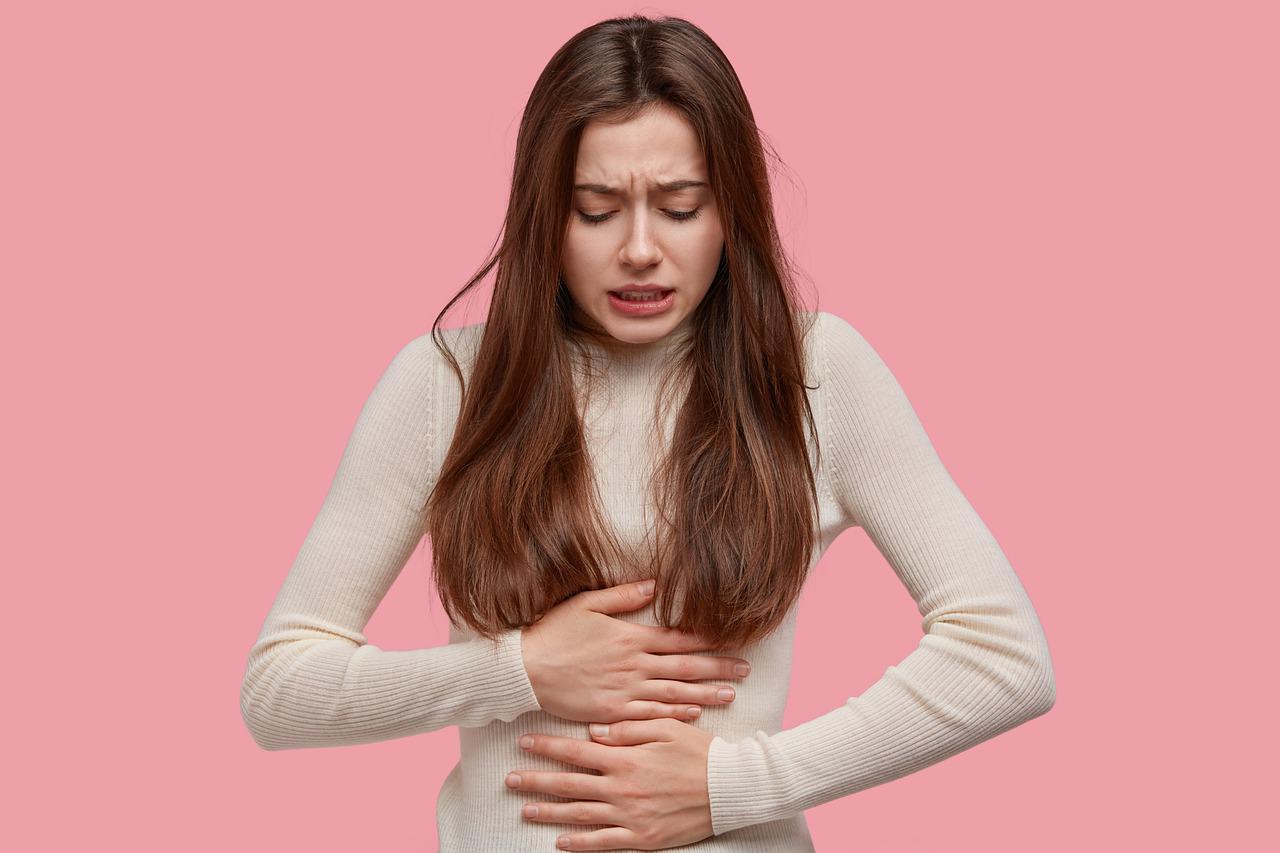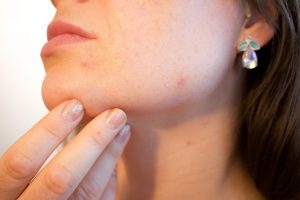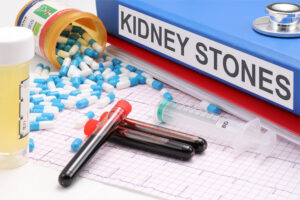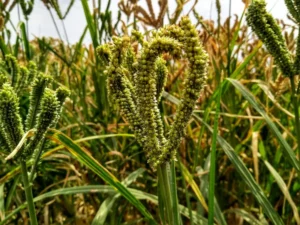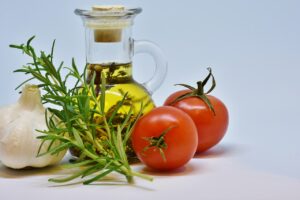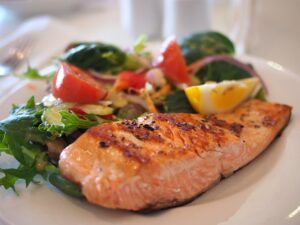How to Reduce Menstrual Pain Instantly?
Because of the severity of period pain, physicians have given it a medical term: dysmenorrhea. Many people have it. According to the American Congress of Obstetricians and Gynecologists, more than half of menstruate women have cramping every month (ACOG). Even though cramps are not generally an indication of a significant health problem, they might be. In addition, you cannot go out with friends or even go to work while you’re doubled over, so your lifestyle is impacted. Let’s check out the natural remedies for painful menstruation.
Why Do Menstrual Cramps Painful?
Prostaglandins are hypothesized to have a role in the onset of dysmenorrhea. Every month, the uterine lining produces more prostaglandins just before menstruation begins. Menstrual pain is often more significant on the first day of your period since your prostaglandin level is at its peak. According to the American College of Obstetricians and Gynecologists, prostaglandin levels decline as your period proceeds and the lining of the uterus is shed.
-
Cinnamon Is A Nice Addition
Young women who took 420-mg cinnamon capsules three times daily during the first three days of their menstrual cycle had less menstrual blood loss and discomfort and less nausea and vomiting than those who received a placebo. Cinnamon is one of the best natural remedies for periods. You may add a little cinnamon to your cereal or hot chocolate for an extra dose of flavor. It won’t hurt and may alleviate some of your period pains.
-
Apply A Heating Pad
It is possible to relax the muscles of your uterus by applying a warm patch or wrap to your abdomen. Because of this, period cramps are caused by these muscles. In addition to increasing circulation, applying heat to the abdomen helps ease discomfort.
Even taking acetaminophen may not be as helpful as using heated pads to treat period cramps (Tylenol). Abdominal heat patches may be purchased online or at any pharmacy. Putting them on is as simple as peeling and sticking. However, if you’re planning to spend a lot of time at home and don’t need to move about much, electric heating pads and hot water bottles may be better than patches.
-
Ginger Is The Way To Go
According to research conducted on young women, ginger pills were equally effective as NSAIDs like ibuprofen and mefenamic acid in relieving symptoms of primary dysmenorrhea, including painful periods. For the first three days of their periods, the women in the ginger group received 250 mg capsules of ginger four times a day. In the mefenamic acid group, women were given 250 mg capsules four times a day, while those in the ibuprofen group got 400 milligrams four times a day.
No matter which therapy group a woman chose, she reported equivalent pain alleviation, treatment satisfaction, and decreased dysmenorrhea intensity. No serious adverse effects were reported by any of the ladies who took part in the research. Try a few slices of fresh ginger to alleviate period discomfort without resorting to prescription medications.
-
Reduce Menstrual Pain with Yoga Poses
When it comes to relieving cramps, a daily yoga practice might be beneficial. Research published in the Journal of Alternative and Complementary best medicine for menstrual cramps found that 20 college students who practiced yoga for an hour a week for three months had more minor menstrual cramps and period misery than 20 women who did not.
According to a study published in the Journal of Physiotherapy, yoga had similar advantages to heating pads. However, some yoga teachers advise women to avoid undertaking inverted positions (such as a shoulder stand) during menstruation to avoid interfering with the body’s normal flow.
-
Curcumin, An Anti-Inflammatory Agent From The Ginger Root
The root turmeric’s active element, curcumin, may alleviate the symptoms of PMS. PMS symptoms decreased in women who took curcumin supplements seven days before and three days after their menstrual cycle compared to those who received placebos.
According to researchers, curcumin’s anti-inflammatory and neurotransmitter-altering properties may be responsible for the decrease in PMS symptoms. Curcumin has been shown to reduce behavioral, mental, and physical symptoms of premenstrual syndrome (PMS). Inflammatory disorders such as arthritis, IBS, inflammatory bowel disease, autoimmune diseases, and others may benefit from curcumin.
-
Try A Transcutaneous Electrical Nerve Stimulation (TENS) Equipment
Period discomfort may be lessened by using a TENS unit. Using transcutaneous electrical nerve stimulation (TENS), low-voltage electrical currents may be used to alleviate pain. TENS devices for home usage are readily available and straightforward to use.
Once the electrode patches have been attached to your skin, you may choose an intensity level that is most comfortable for you. TENS has been demonstrated to reduce period discomfort, enhance the quality of life, and reduce the need for unbearable period pain medication.
-
Vitamin B1 And Fish Oil
What to eat during periods to reduce stomach pain? Is it possible that fish oil might alleviate the discomfort associated with menstruation? The effects of vitamin B1 and fish oil on the symptoms of dysmenorrhea in high school children were researched by researchers. Each of the four groups of young ladies was given a name and a task. Vitamin B1 was given to one group at a dosage of 100 milligrams per day.
Another ingested 500 mg of fish oil daily. Vitamin B1 and fish oil were taken by one group regularly. A placebo was administered to the last group. Menstruating women began therapy at the start of their periods and continued for two months. Vitamin B1 or fish oil supplementation reduced pain considerably compared to those who received a placebo. Compared to those using a placebo, the ladies who took fish oil or vitamin B1 indicated that their discomfort did not stay as long.
-
Vitamin D From The Sun
Dysmenorrheal cramps may be incapacitating. Because the uterus contracts due to an increase in prostaglandin levels, dysmenorrhea is linked with severe pain. The uterine lining is lost as a result of these contractions. Prostaglandins are less likely to be produced when vitamin D levels are high.
Pain intensity improved both eight weeks considerably into therapy and one month after the conclusion of treatment for young women with primary dysmenorrhea who had low vitamin D levels. Vitamin D supplementation reduced the amount of pain medication needed to manage period discomfort in women. A simple blood test to check your vitamin D levels may be requested from your physician.
-
Period Cramps Can Be Alleviated by Changing Your Diet
According to a study published in Obstetrics and Gynecology, 33 women with dysmenorrhea found that a low-fat vegetarian diet reduced their cramps. The American Heart Association recommends that people replace unhealthy fats like saturated fats found in animal products with heart-healthy fats like olive oil.
As a rule, the organization advises choosing healthier fats such as those found in fish and nuts. The Harvard T.H. Chan School of Public Health’s healthy eating plate guide includes recipes that don’t rely heavily on fats.
-
Magnesium Supplementation
How to reduce period pain? You require magnesium to power more than 300 enzyme systems in your body for muscle, protein, and healthy bone growth. Magnesium is essential for the normal functioning of muscles and neurons, blood pressure regulation, and blood sugar management. Magnesium is required for the synthesis of DNA and RNA and glutathione, the body’s primary antioxidant.
When combined with vitamin B6, magnesium may help reduce the symptoms of premenstrual syndrome (PMS). One research indicated that women who took 250 mg of magnesium and 40 mg of vitamin B6 per day reported the most significant decrease in PMS symptoms. Be aware. Certain drugs, including antibiotics, proton pump inhibitors (PPIs), diuretics, and bisphosphonates, might be affected by magnesium. To determine whether magnesium is suitable for you, talk to your doctor or pharmacist.
-
Try A New Position As You Sleep
According to anecdotal evidence, the fetal position is the ideal posture to sleep in during menstruation. There is a possibility that the posture does not put any pressure on your abdomen or lower back, which is where period discomfort generally occurs. Despite the lack of scientific evidence, it is still worth a try to see whether your sleeping posture might alleviate your period discomfort.
Conclusion
Even though period cramps are regular, they may hurt your daily life. However, there are things you may do to alleviate the ache produced by these annoying cramps. If, on the other hand, the discomfort persists or becomes so severe that it interferes with your daily activities, you should make an appointment with your physician. Besides these, you can check out drinks that help with period cramps.
FAQs:
What Relieves Period Pain Quickly?
Applying heat to your belly with a heating pad or a hot water bottle (covered in a tea towel) may help relieve discomfort. Warm bath or shower – a warm bath or shower might help you relax and ease discomfort. A gentle, circular massage around your lower belly may also help you feel better.
Is It True That Lemon May Help With Menstruation Pain?
Lemon juice with ginger: Lemon juice is high in calcium and magnesium, which help reduce period discomfort.
Why Are My Period Cramps Hurting So Much More Than Usual?
What causes them to happen? Your uterus contracts to help shed its lining during your menstruation. Prostaglandins, which are hormone-like molecules, cause these contractions. Menstrual cramps are connected with higher amounts of prostaglandins.
Also Read: Health Benefits of Yoga: A Prescription for Healthy Living

